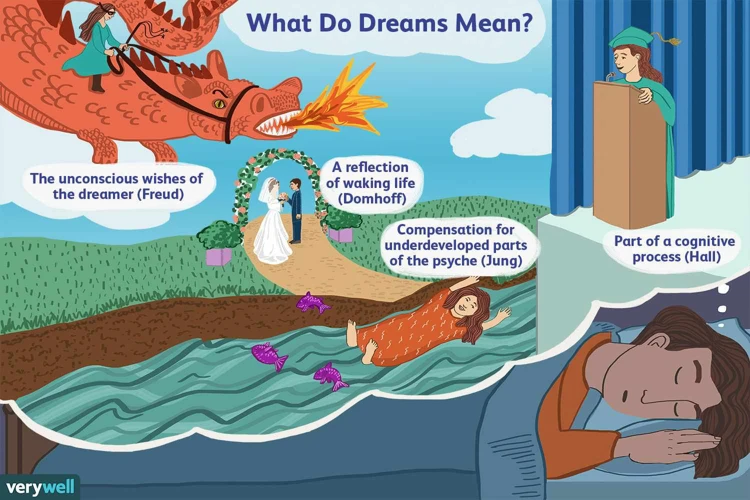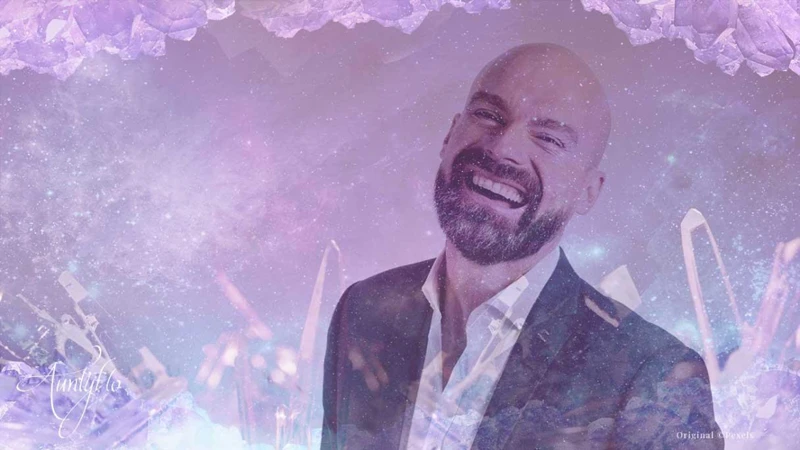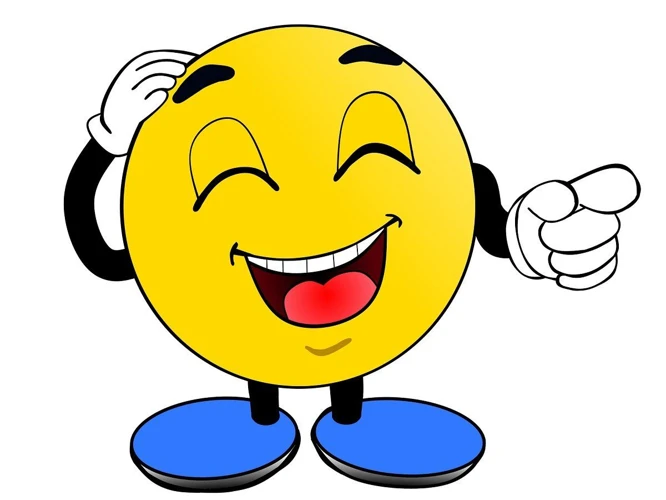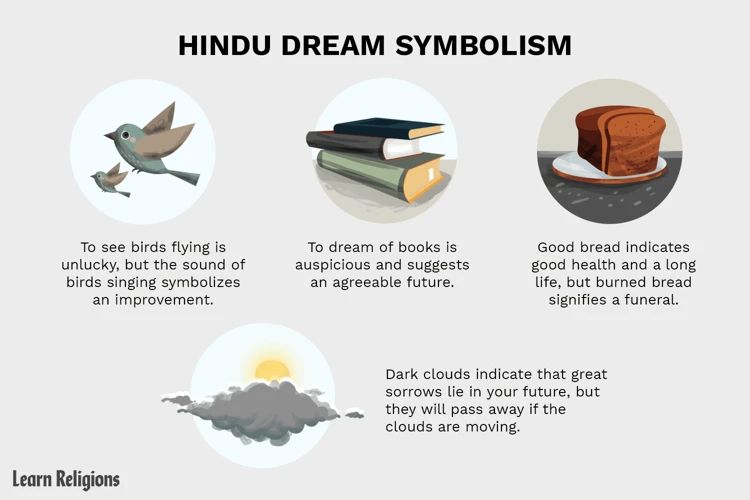Can you imagine waking up from a dream, still feeling the echoes of laughter echoing in your ears? Laughing in dreams is a fascinating phenomenon that has perplexed and intrigued researchers for years. We spend a significant portion of our lives in the realm of dreams, where anything is possible and our unconscious mind takes control. In this article, we delve into the psychology of dreams, exploring their connection to our emotions and unveiling the meaning behind laughter in our nightly fantasies. Join us as we unravel the symbolism of laughter, examine its different types in dreams, and interpret its significance in various contexts. So, get ready to unlock the mysteries of your dreams and embark on a journey of self-discovery as we explore the intriguing world of laughter in dreams.
The Psychology of Dreams

The Psychology of Dreams reveals the hidden secrets of our subconscious mind, providing insights into our emotions, desires, and fears. Within the realm of dreams, our unconscious thoughts and feelings are given a voice, allowing us to explore our innermost thoughts in a symbolic and often vivid way. Understanding the psychology of dreams can deepen our self-awareness and enrich our waking lives. To unveil the mysteries of our dreams, researchers have explored two key aspects: the unveiling of the unconscious mind and the reflection of our emotions. Through these explorations, we gain a greater understanding of the significance of our dreams and their impact on our mental well-being.
1. Unveiling the Unconscious Mind
Unveiling the unconscious mind is a fundamental aspect of understanding the psychology of dreams. Our unconscious mind holds a wealth of hidden thoughts, desires, and memories that may not be accessible to us in our waking state. Through dreams, these unconscious elements are brought to the surface, often in symbolic form. Dream analysis techniques such as interpretation, symbolism, and free association help us decipher the hidden messages within our dreams. By unraveling the mysteries of the unconscious mind, we gain valuable insights into our deepest fears, unresolved conflicts, and unfulfilled desires. The process of unveiling the unconscious mind in dreams can serve as a powerful tool for self-reflection and personal growth.
2. Dreams as Reflections of Our Emotions
Dreams serve as powerful mirrors that reflect our emotions, providing a window into our deepest feelings and experiences. When we dream, our subconscious mind takes center stage, allowing our emotions to manifest in symbolic and often highly exaggerated ways. Dreams can serve as an outlet for repressed emotions, providing a safe space for exploration and expression. Whether we experience joy, fear, sadness, or anger in our dreams, these emotions can offer valuable insights into our mental and emotional states. By analyzing the emotions present in our dreams, we can gain a better understanding of our unresolved issues, unmet needs, and areas of personal growth. Through this process, we can begin to unravel the intricate connection between our dreams and our waking emotions, ultimately fostering greater self-awareness and emotional well-being.
Understanding Laughter in Dreams

Understanding Laughter in Dreams is a captivating exploration that allows us to delve into the symbolism and significance behind the laughter that fills our nightly fantasies. Laughter in dreams can hold various meanings, acting as a reflection of our emotions, desires, or fears. By examining the types of laughter experienced in dreams, such as joyful laughter or laughter in nightmares, we can gain insight into our subconscious thoughts and innermost feelings. Whether it’s laughter that brings joy and happiness or laughter that conceals deeper emotions, our dreams offer a glimpse into our complex psyche. So, let’s embark on this intriguing journey to unravel the mysteries of laughter in dreams and gain a deeper understanding of ourselves.
1. Symbolism of Laughter
When it comes to the symbolism of laughter in dreams, several interpretations can be considered. Laughter is often associated with joy and happiness, representing a release of positive energy and an expression of lightheartedness. In dreams, laughter can signify a sense of contentment, satisfaction, or a reminder to find joy in life’s moments. However, it is important to analyze the context and emotions surrounding the laughter to truly understand its meaning. Laughter in dreams can also have a deeper symbolism, representing a coping mechanism or defense mechanism to mask underlying anxieties or fears. It can serve as a way for the subconscious mind to process and release tension or stress. Exploring the symbolism of laughter in dreams can provide valuable insights into our emotional states and help us navigate our waking lives with a greater understanding of our inner selves.
2. Types of Laughter in Dreams
In the realm of dreams, laughter comes in various forms, each carrying its own distinct meaning. Understanding the types of laughter in our dreams can provide valuable insights into our emotions and subconscious mind. One type of laughter commonly experienced in dreams is contagious laughter. This is when we find ourselves unable to stop laughing, even if the situation isn’t particularly funny. It often symbolizes a release of tension or a need for lightheartedness. Another type is maniacal laughter, which can be unsettling and indicate repressed emotions or a sense of powerlessness. On the other hand, genuine laughter in dreams signifies joy, happiness, and a sense of freedom. Exploring these different types of laughter in dreams allows us to decipher the underlying messages and emotions being conveyed by our unconscious mind.
Interpreting Laughter in Different Contexts

Interpreting Laughter in Different Contexts is a crucial step in understanding the meaning behind laughter in our dreams. Laughter can manifest in various contexts, each carrying its own symbolism and significance. Firstly, laughter in joyful dreams signifies a sense of happiness and fulfillment. It may indicate that we are content and satisfied with our current circumstances. On the other hand, laughter in nightmares can be unsettling, symbolizing a release of tension or a defense mechanism to cope with fear. In surreal dreams, laughter may represent a sense of absurdity or a departure from reality. It’s important to consider the context and emotions surrounding laughter in order to gain a deeper understanding of its meaning in our dreams.
1. Laughter in Joyful Dreams
Laughter in joyful dreams is a delightful and uplifting experience. It signifies a state of happiness, contentment, and joy in our subconscious mind. When we find ourselves laughing in these dreams, it often reflects our inner sense of fulfillment, satisfaction, and positive emotions. The laughter in joyful dreams can be contagious, spreading a sense of lightness and warmth throughout the dream. It serves as a reminder of the simple pleasures in life and can leave us with a lingering sense of happiness upon waking. So, cherish those moments of laughter in your joyful dreams, as they are a reflection of the happiness and fulfillment you seek in your waking life.
2. Laughter in Nightmares
Laughter in nightmares can have a chilling and eerie effect, leaving us with a sense of unease even after we wake up. It’s important to note that laughter in nightmares is not necessarily a reflection of joy or amusement. Instead, it often signifies a deeper psychological meaning. In some cases, laughter in nightmares can represent a defense mechanism, a way for our subconscious mind to cope with terrifying scenarios. It can also symbolize a release of tension or a subconscious attempt to distance ourselves from the fear we’re experiencing. Understanding the meaning behind laughter in nightmares can help us confront and process our fears, allowing us to gain a sense of control over our dreams and alleviate the distressing emotions they may evoke.
3. Laughter in Surreal Dreams
Laughter in surreal dreams adds an extra layer of intrigue and complexity to our dream experiences. In these dreams, the boundaries of reality are blurred, and our imagination takes center stage. The laughter that emerges in surreal dreams often reflects the absurdity and nonsensical nature of the dream scenario. It can be a way for our subconscious mind to cope with the bizarre and illogical events happening within the dream. Surreal dreams may be filled with whimsical characters, fantastical landscapes, and peculiar occurrences, all of which can elicit laughter as a response to the sheer oddity of the dream. The laughter in these dreams can also serve as a reminder to not take ourselves too seriously and embrace the magical and unpredictable aspects of life. It is through the lens of surrealism that we can explore our creativity and tap into the limitless possibilities of our imagination.
Common Symbols Associated with Laughter

Common Symbols Associated with Laughter can provide valuable insights into the meaning and interpretation of laughter in dreams. These symbols often appear as visual representations within our dreams, carrying their own significance and symbolism. Some common symbols associated with laughter in dreams include:
- People Laughing: The presence of people laughing in dreams can represent joy, celebration, or a sense of camaraderie. It may indicate a positive social interaction or a shared moment of happiness.
- Laughter in Silent Dreams: In some dreams, we may witness laughter without hearing any sound. This silence could symbolize hidden emotions, repressed laughter, or a need to express oneself more freely.
- Laughter in Group Settings: Dreams that feature laughter in group settings may symbolize a sense of belonging, support, or shared experiences. It can signify a positive social environment or a need for social connection.
Understanding these symbols can aid in interpreting the meaning behind laughter in dreams and further uncover the messages that our subconscious mind is attempting to convey.
1. People Laughing
When people are laughing in dreams, it can hold symbolic meaning. Laughter is often associated with joy, happiness, and a sense of humor. In dreams, seeing people laughing could represent a celebration or a release of pent-up emotions. It may indicate that you are experiencing moments of pure joy or contentment in your waking life. Alternatively, it can also suggest a desire for more lightheartedness and laughter in your daily routine. Pay attention to the context and the specific individuals involved in the laughter to gain a deeper understanding of its significance within the dream.
2. Laughter in Silent Dreams
Laughter in Silent Dreams is a peculiar occurrence that adds an element of intrigue to our dream experiences. In these dreams, we may find ourselves laughing heartily, yet no sound is produced. The absence of audible laughter in these dreams highlights the complex nature of our dream world and the way it can deviate from reality. Silent laughter in dreams may symbolize suppressed emotions, a desire to express oneself without making a sound, or a subconscious fear of being heard or judged. It can be a manifestation of our subconscious mind’s attempt to communicate something important to us. Exploring the meaning of laughter in silent dreams can offer valuable insights into our internal struggles and desires, providing an opportunity for self-reflection and personal growth.
3. Laughter in Group Settings
Laughter in group settings within dreams can carry a profound meaning. When we envision ourselves laughing among a group of people in our dreams, it signifies a sense of connection, camaraderie, and belonging. It reflects the social aspect of our personality and indicates a desire for social interaction and acceptance. This type of laughter in dreams may also symbolize shared joy, shared experiences, and the feeling of being part of a community. It highlights the importance of human connection and the positive impact it has on our overall well-being. The presence of laughter in group settings in our dreams serves as a reminder to nurture our relationships and seek meaningful connections with others in our waking lives.
Reflecting on Your Personal Experiences
Reflecting on Your Personal Experiences is a crucial step in understanding the meanings behind your dreams and, specifically, the laughter within them. Two effective methods for reflection include keeping a dream journal and seeking professional help. Keeping a dream journal allows you to record and analyze your dreams, noting patterns and recurring themes. It provides a valuable resource for self-reflection and can aid in identifying the significance of laughter in your dreams. Additionally, seeking professional help from a therapist or dream analyst can provide expert guidance in interpreting the meaning behind your dreams and understanding the role of laughter within them. By actively reflecting on your personal experiences, you can gain deeper insights into the messages your dreams are trying to convey.
1. Keeping a Dream Journal
Keeping a Dream Journal is a valuable practice for those seeking to explore the meaning behind their laughter in dreams. By recording our dreams in a journal, we create a tangible record of our subconscious experiences. Noting down details such as the setting, characters, and emotions experienced in the dream can provide valuable insights into the symbolism and messages conveyed through laughter. Additionally, maintaining a dream journal allows us to detect patterns, recurring themes, and connections between our dreams and waking life. It’s important to remember that dreams may not always have a linear narrative, and jotting down fragmented snippets of laughter can still hold significance. Regularly reviewing and reflecting on our dream journal entries can unlock hidden meanings and contribute to personal growth and self-discovery.
2. Seeking Professional Help
Seeking professional help for dream analysis can be a beneficial step in understanding the meaning behind laughter in your dreams. Licensed therapists, psychologists, or dream experts have the expertise to interpret your dreams and provide meaningful insights. They can help you explore the symbolism of laughter and how it connects to your subconscious thoughts and emotions. By discussing your dreams with a professional, you can gain a deeper understanding of yourself, uncover unresolved issues, and find ways to enhance your psychological well-being. Professional help can be especially valuable if you experience recurring dreams or if your dreams involve intense emotions that impact your daily life. Remember, seeking professional help does not signify weakness but rather a proactive approach to self-discovery and personal growth.
Conclusion
In conclusion, laughter in dreams holds a deeper meaning that can provide valuable insights into our emotions, fears, and desires. By exploring the symbolism and interpretation of laughter in different dream contexts, we can gain a greater understanding of ourselves and our subconscious mind. Whether it is laughter in joyful dreams, nightmares, or surreal scenarios, each instance carries a unique significance that requires introspection and reflection. By keeping a dream journal and seeking professional help when needed, we can further analyze and interpret our dreams, unlocking the messages they hold. So, embrace the laughter in your dreams and allow it to guide you on a path of self-discovery and personal growth. Remember, the world of dreams is a vast and powerful realm that holds the key to unlocking the depths of our subconscious mind.
Frequently Asked Questions
1. Can dreams reveal our deepest fears and desires?
Yes, dreams can provide a window to our unconscious mind and bring our deepest fears and desires to the surface. They often symbolize hidden emotions and unexpressed thoughts.
2. Why do we forget most of our dreams?
Forgetting dreams is a common experience due to the nature of memory consolidation during sleep. The brain prioritizes essential information and filters out non-essential details, causing dreams to fade from our memory rapidly upon waking.
3. Can dreams give us insights into our future?
While dreams are a product of our subconscious mind, they are not prophetic in nature. Dreams primarily reflect our current emotions, experiences, and thoughts, rather than providing specific insights into the future.
4. Are recurring dreams significant?
Recurring dreams can hold significance as they often indicate unresolved issues or repetitive patterns in our lives. Exploring the symbols and emotions within these dreams can lead to valuable self-reflection and personal growth.
5. Can nightmares be beneficial for our mental well-being?
Despite their unsettling nature, nightmares can serve a purpose. They can act as a warning sign, helping us process and confront our fears, traumas, and anxieties. They can also motivate us to make positive changes in our lives.
6. What causes lucid dreaming?
Lucid dreaming occurs when the dreamer becomes aware that they are dreaming while still in the dream state. It can occur spontaneously or be induced through various techniques like reality checks and keeping a dream journal.
7. How does stress affect our dreams?
Stress can significantly impact our dreams by influencing the content and emotional tone. High-stress periods can lead to more vivid, intense, and anxiety-laden dreams, reflecting the mind’s attempt to process and cope with stressors.
8. Can external factors influence our dreams?
Absolutely. External factors such as the environment, daily experiences, and media consumption can all find their way into dreams. These elements can shape dream scenarios and influence the emotions we experience during sleep.
9. Is it possible to control the content of our dreams?
While we don’t have complete control over our dreams, certain techniques like visualization, positive affirmations, and setting intentions before sleep can increase the likelihood of dreaming about specific topics or experiences.
10. Do animals also dream?
Research suggests that animals, including mammals and birds, do experience dreams. They exhibit similar brain activity patterns during sleep as humans and display behaviors that indicate dream-like experiences.

